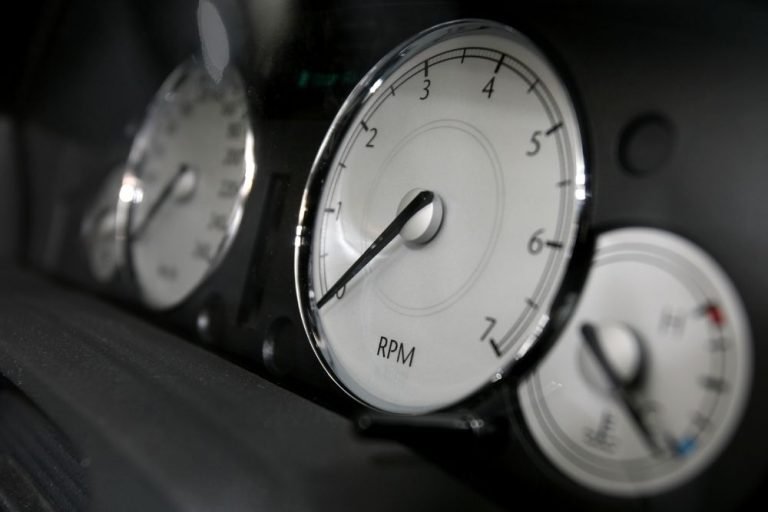ICS Malfunction – What Is It and How To Fix It?
It is a common issue for Toyotas, and other brands of cars, to have issues with the ICS that can result in harassment of messages on the dashboard and even failures with sometimes highly important systems like the parking sensor.
Sure, we can all park without the sensor but it makes the task a heck of a lot easier! This short and sweet blog post is going to cover what the ICS malfunction is, what causes it to malfunction, and even a few quick fixes that might save you a few bucks!
What is an ICS system?
The ICS system in your car helps you avoid bumps and crashes by alerting you to obstacles when you are driving at slow speeds. Your ICS system is responsible for your rear parking sensors as well as any front or side-facing sensors your vehicle may utilize.
The ICS system is excellent for helping you out in tough-to-fit-in parking spots as well as navigating tight driveways, alleys, etc. But unfortunately, an ICS malfunction is pretty common.
What causes an ICS malfunction?
There are plenty of common causes for an ICS malfunction. The most common is simply because you had a low-speed low-impact crash/bump that was enough to damage the sensors slightly. Or, you had a high-speed crash and the reason the sensors are no longer working should be pretty darn apparent. However, there is a couple of other common ICS malfunction causes to beware of.
Damaged wiring harness
The wiring harness that allows the camera sensors and the onboard computer to communicate can become loose or damaged and result in an ICS malfunction. A good way of identifying whether or not it is a wiring harness issue is whether you find that other electronic systems within your car are failing. The wiring harness is responsible for plenty of other things than simply the parking sensors.
Waterlogged sensors
Sensors can become waterlogged if they are cracked/damaged and are even thrown off by water simply leaking on them in some cases. Considering the intense speeds these sensors are subjected to they are pretty fragile and don’t take well to water. You can sometimes tell visually whether water is the primary cause of your ICS malfunction.
Water damage is so common that many vehicle owners avoid automatic car washes because the pressure is too high and it can damage the sensors. If you have ever used a parking camera while using the automatic carwash you can see firsthand the extreme force that the sensors and cameras are subjected to.
What are some potential quick fixes?
Luckily, despite being a complex bit of kit that is quite fragile there are some quick fixes you can perform without necessarily needing to take your car into the dealership. For example, cleaning the sensors and ensuring they are properly fitted to the car and are not loose. Sometimes it’s as simple as pushing them in slightly. Sadly, this is a rarity and you will almost always need to speak to someone about replacing parts or components.
If a sensor is damaged because of water or impact, it will need to be replaced. This is not an overly complicated process though you are far better off having a Toyota mechanic perform the repair for you rather than attempting to do it yourself. The sensors are fragile, as we have mentioned, so knocking them off or breaking them is unfortunately quite easy.
If you are suffering from the results of a damaged wiring harness the fix is going to be neither quick nor cheap and is certainly not something you should be performing yourself. A mechanic will need to take apart the wiring terminals and fix any broken connections. Beware that fixing is often more expensive than replacing and takes a fair bit longer. It is up to you to make a judgment call about which option is better. Though, your mechanic can likely point you in the right direction.
How much could it cost to repair the ICS?
The cost of repairing the ICS system varies depending on what the problem is. If you need to replace the entire wiring harness and all the wiring frames, and repair or replace multiple connections around the vehicle you could expect to pay several hundred to a few thousand dollars. Or, you could replace it for about $1500 including parts and labor. Prices will vary.
When it comes to sensors, the price is a little harder to predict and unfortunately has the potential to skyrocket depending on how many sensors need replacing. A sensor can cost, on average, about $150-$300 each so depending on how widespread the damage is this could end up being a hefty sum. Most Toyota vehicles have 8 ICS sensors, four on the front and four on the back. Just something to keep in mind.
Can I disable the ICS?
The ICS malfunction alert is chirping at you and you are unable or unwilling to fix it. Is there anything you can do? Sure, you can always just turn it off. On most Toyotas, the ICS system can be disabled by pressing the down arrow on your steering wheel until you reach settings. Then, scroll using the right button until you find ICS, and then you can simply turn it off.
Remember, turning off your ICS can put you at risk of bumps and scrapes without the aid of parking sensors and parking cameras. Make sure to take extra care to adjust to driving at slow speeds without the help of your ICS.
Conclusion
By now, you should have a good idea about what the ICS is and what common occurrences can cause it to malfunction. It doesn’t always require a trip to the dealership but unfortunately, that is sometimes unavoidable.
Whether you are lucky enough to fix it yourself or will need to shell out a few hundred bucks to fix it, you should now have a much better idea about what to look out for in the future and can even take proactive steps to stop it from faltering again. Sure, you can disable the ICS if you find its constant complaints annoying, but you can’t argue it doesn’t sometimes come in handy!




